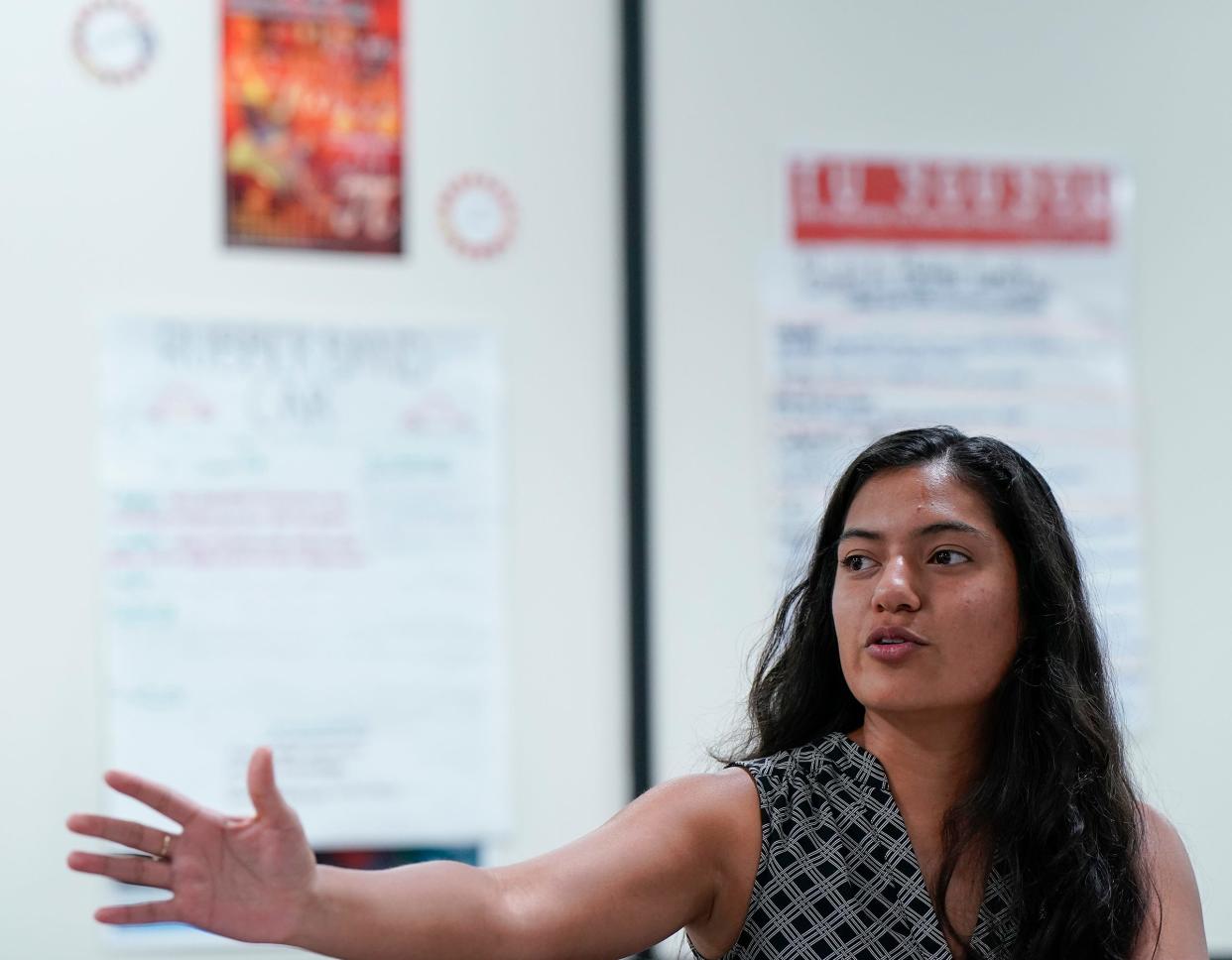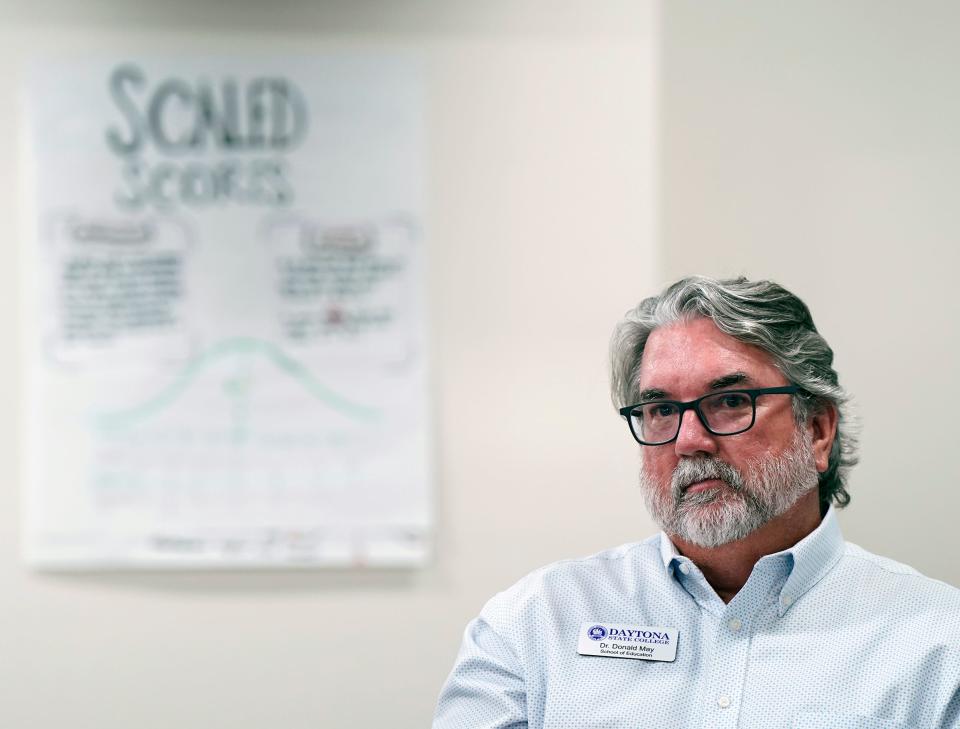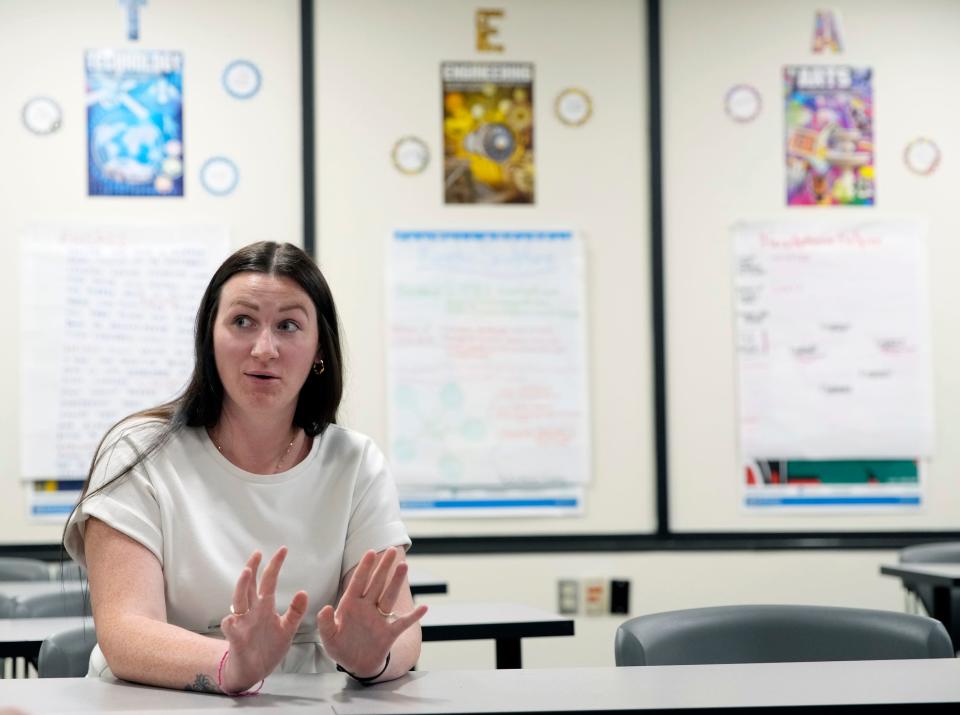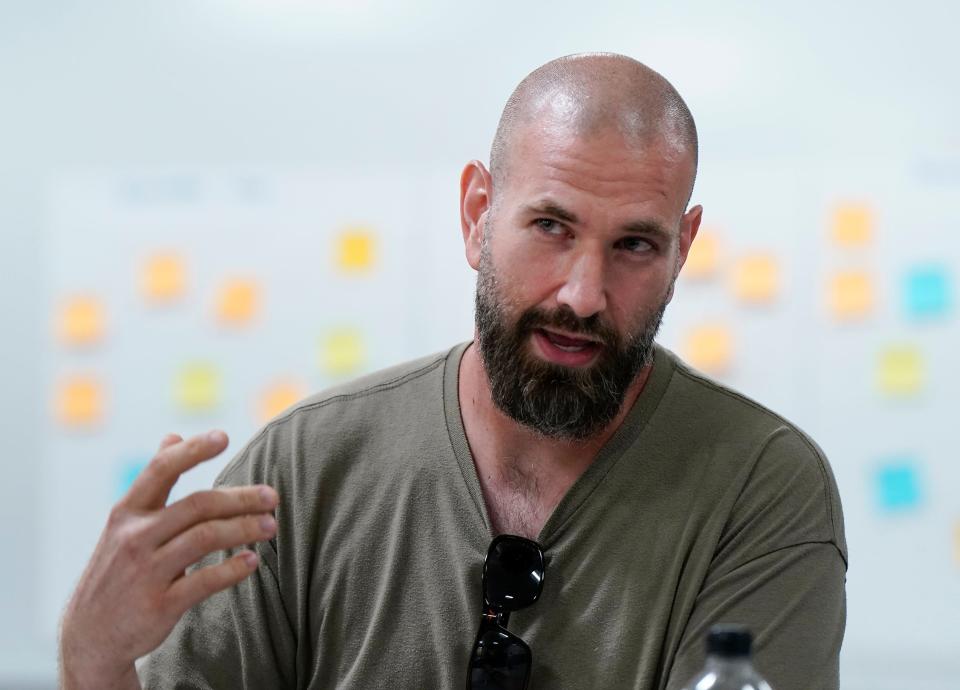Why it matters that Daytona State College's teacher-prep program for reading has A-rating

Monica Adjemian didn't know where she would end up when she entered Daytona State College in 2018. Turns out it was right back in school.
With school districts across the country facing teacher shortages, DSC has developed a distinguished bachelor's in education program, helping supply Volusia County Schools and other districts with teachers who are well-prepared, particularly in the area of teaching reading.
The Daytona State teacher prep program for reading recently received an "A" grade from the National Council on Teacher Quality. The assessment distinguished DSC as the only school in the State College System to achieve that ranking.
And the DSC program lured Adjemian, who tried several different courses − including psychology, sociology, religion and geography. But Introduction to Education convinced her to pursue her bachelor's degree in education, which she finished last December.
Adjemian spent a lot of hours in "the field," or elementary classrooms, where she sometimes was given teaching duties.
"I liked taking charge, I guess you could say, taking the leadership role and taking care of (students)," Adjemian said. "I don’t have kids of my own, but I see my students as my priority, keeping them safe and teaching them things, like being able to read a book or being able to complete that math problem.”
In January, Adjemian started as a first-grade teacher at West Side Elementary in Daytona Beach, where she'll teach third grade starting on Monday.
Science of teaching reading
Teaching a child how to read is not like flipping a switch. It's more akin to installing wiring, screwing in a bulb and plugging in a lamp.
It's a process. Starting with birth, the skills needed to read are built on a foundation of all the sights and sounds that a child experiences. By the time that child lands in Adjemian's room, she has to assess what's been done and what's left to do.
She does this with questions: What are the child's skills and limitations in speaking and listening? How well does he or she understand the sounds in words? Can the child "sound out," or use phonic, to identify a word in text?
DSC education professor Lesley Nadal said one key to getting students to become fluent readers is knowing what interests them. Student-teachers learn how to take "interest inventories" of their children.
"That kind of helps pique their interest in reading and close that gap, and if they’re interested in reading about something that they’re interested in, whether it’s a nursery rhyme, whether it’s song lyrics that are clean, of course, age-appropriate, or it’s about sports or something that helps with their fluency or their comprehension and helps close that gap," Nadal said.
This is the science behind instructing young children to read, and Volusia County Schools administrators who hire teachers say Daytona State College graduates like Adjemian come prepared.
"It's always a really great mark for the candidates," said Tiffany Fuller, Volusia schools' recruitment and retention coordinator.
Alicia Douglas, principal at Manatee Cove Elementary in Orange City, said when she reviews applications and sees DSC listed, "it tells me they have great preparation.”
The relationship between the school district and the DSC education department is a "continual blending," Fuller said with many Volusia graduates attending the college, then as DSC students returning to the district to participate in practicums, internships and a senior internship apprentice program that has students take the lead in teaching a class.
And Douglas said the college's professors foster a collaborative relationship with district administrators by hosting roundtables and openly discussing strengths and weaknesses in the program.
“They tend to be forward thinking in ways that we can progress the profession,” Douglas said.
Job placement rate: Nearly 100%
The National Council on Teacher Quality rated DSC's teacher prep program for reading among the nation's best. Of 693 programs across the nation, 112 earned an A. In Florida, DSC was one of 7 schools − and the only one in the State College System − to achieve that grade.

Donald May, chair of the DSC School of Education, said the council's evaluation demonstrates how graduates learn the six areas of reading: oral language, phonetic awareness, phonics, vocabulary, fluency and comprehension.
"What’s the difference between phonics and phonetic awareness? How to use phonics to teach decoding and encoding. How to do screening measures, diagnostic measures to meet the kids where they are in their classrooms. And they understand response intervention, so they’re really with it," May said. "By the time they finish reading practicum and they finish their senior internship, they really know what they’re doing."
That's critical at a time when, nationwide, national school-age reading and math scores have been in decline for several years, since even before the disruptions of the pandemic. Meanwhile, there's a shortage of people looking to teach, leaving school districts scrambling in the days before − and in some cases even after − school starts.
May said the DSC School of Education's enrollment has been consistent since the pandemic, but says it's not large enough to keep up with teachers who are retiring or leaving the job.
"We graduate about 70 to 80 students every year, about 30 or 40 each semester," May said. "At that rate, ... out of all the universities and schools in Florida, that’s not going to catch up with the teacher shortage."
DSC's job placement rate for education graduates is 98.5% or higher every year, with the remainder of students taking positions in other states or going on to graduate school, May said.
"We’re making a positive impact, especially for Volusia and Flagler schools, because (graduates) mainly do stay here," he said. "Would I love to get more? If we have kids from Miami-Dade and Jacksonville come here, that would be great.”

What attracts teachers to the field?
DSC senior Emily Peludat, who will be interning in a 2nd and 3rd-grade gifted class at Horizon Elementary in Port Orange this semester, plans to graduate in December. She called studying education at DSC the best decision she's made.
“I’ve always loved school," she said. "That’s what I wanted to do."
She was able to complete an internship at Cypress Creek Elementary School, where she attended. She was able to teach alongside teachers who were there when she was younger.
DSC offered recent graduate Patrick Jones something different.
The new 5th grade teacher at Tomoka Elementary School in Ormond Beach was the son of two teachers but chose a different path. For 20 years, he worked in the restaurant industry and had a family of his own before starting to think about teaching.

The teacher shortage was evident when he enrolled his children in local schools.
"I saw what was happening with my own kids. I was looking for a career change and so all of these pieces kind of all came into place," Jones said.
He began taking classes, mostly online and continued to work as a restaurant manager until he became a teaching intern.
"The pay scale, which is what a lot of people talk about, was pretty consistent with what I was making as a restaurant manager," Jones said. "And I would be able to spend more time with my kids, which was really attractive.”
Teacher Shortage: With school beginning soon, teacher vacancies down in Volusia, Flagler counties
Worldwide Recruiting Volusia school board considers hiring international teachers to address critical shortages
This article originally appeared on The Daytona Beach News-Journal: DSC education degree program for teaching reading earns A grade

